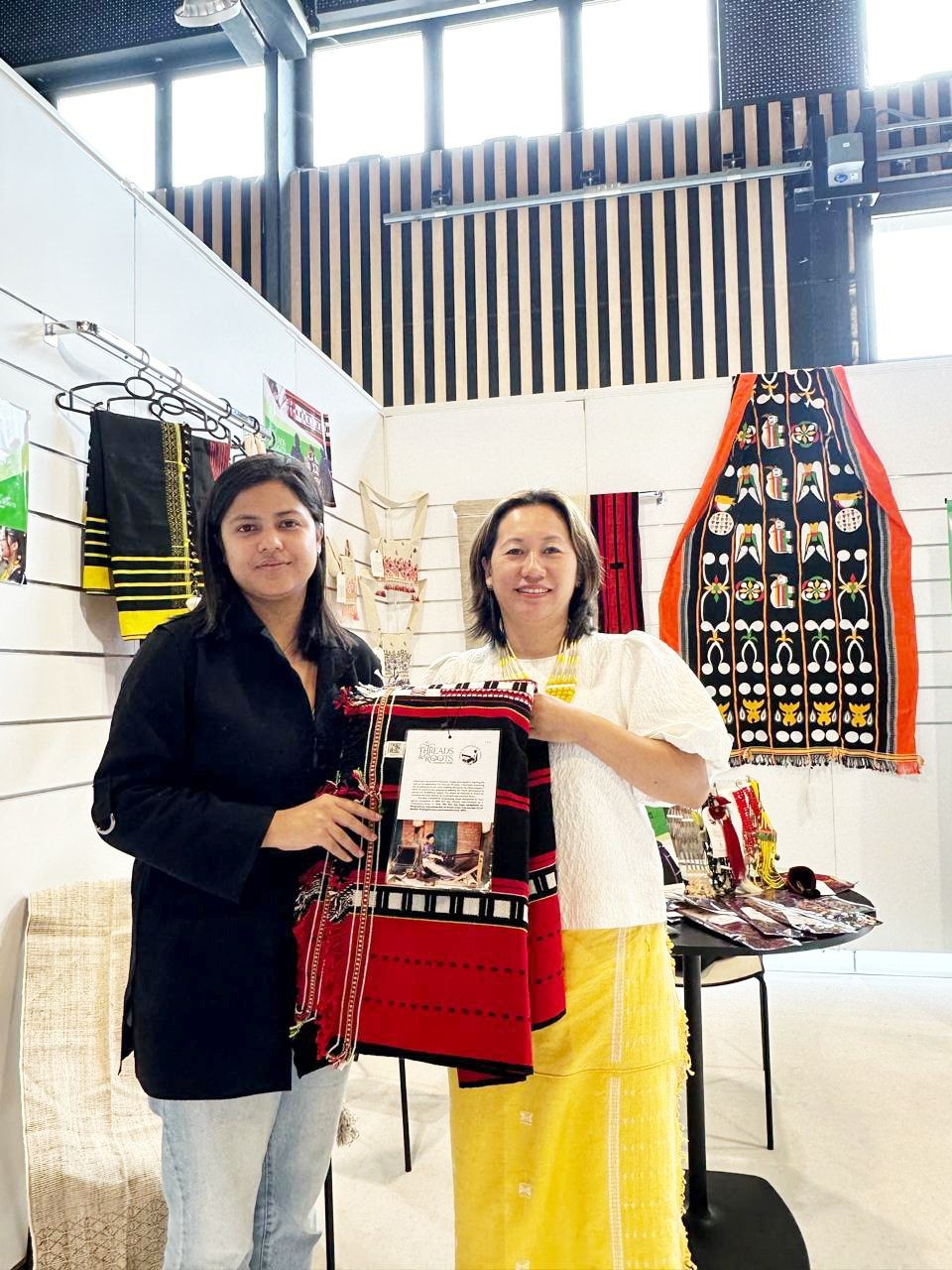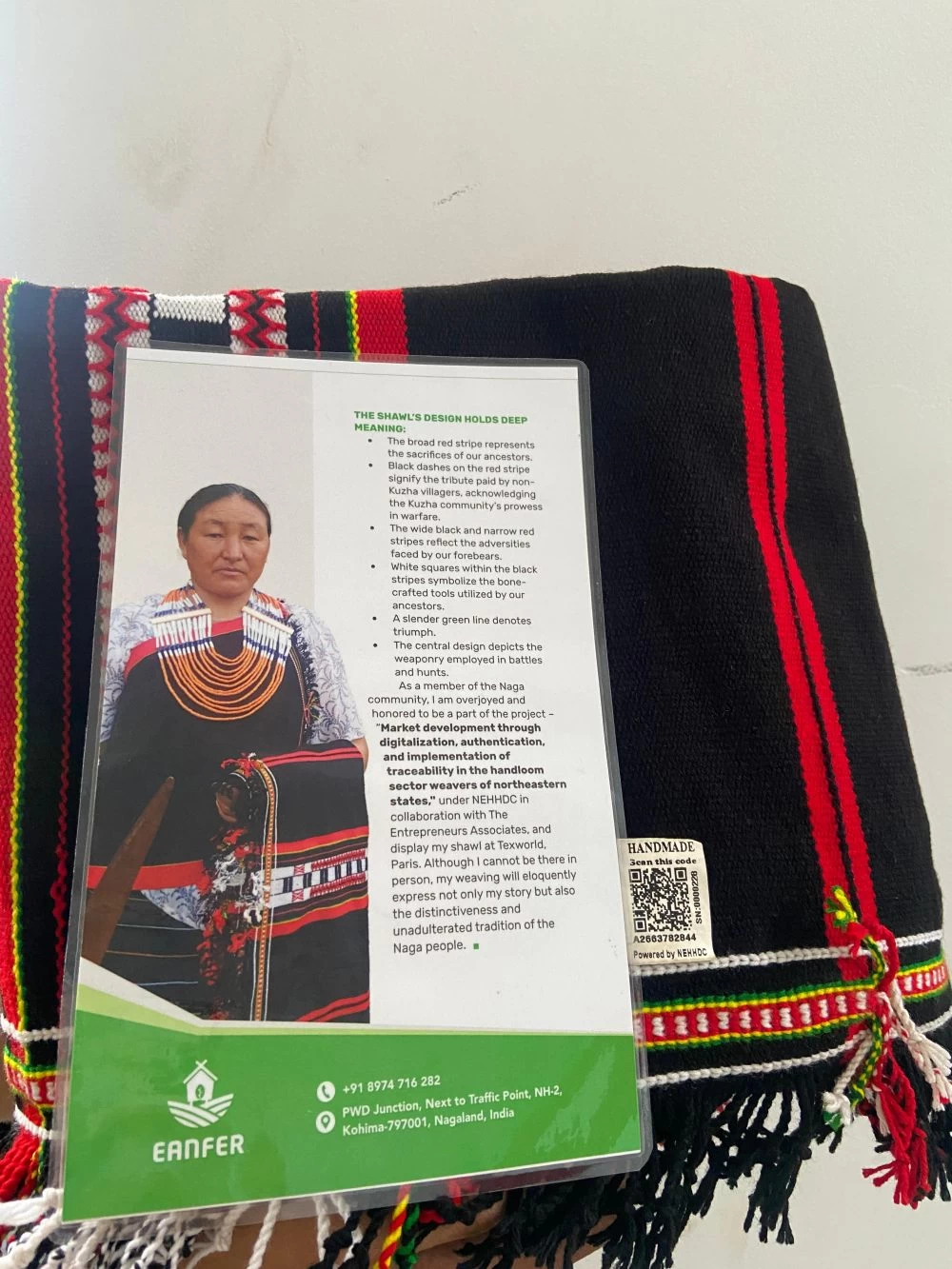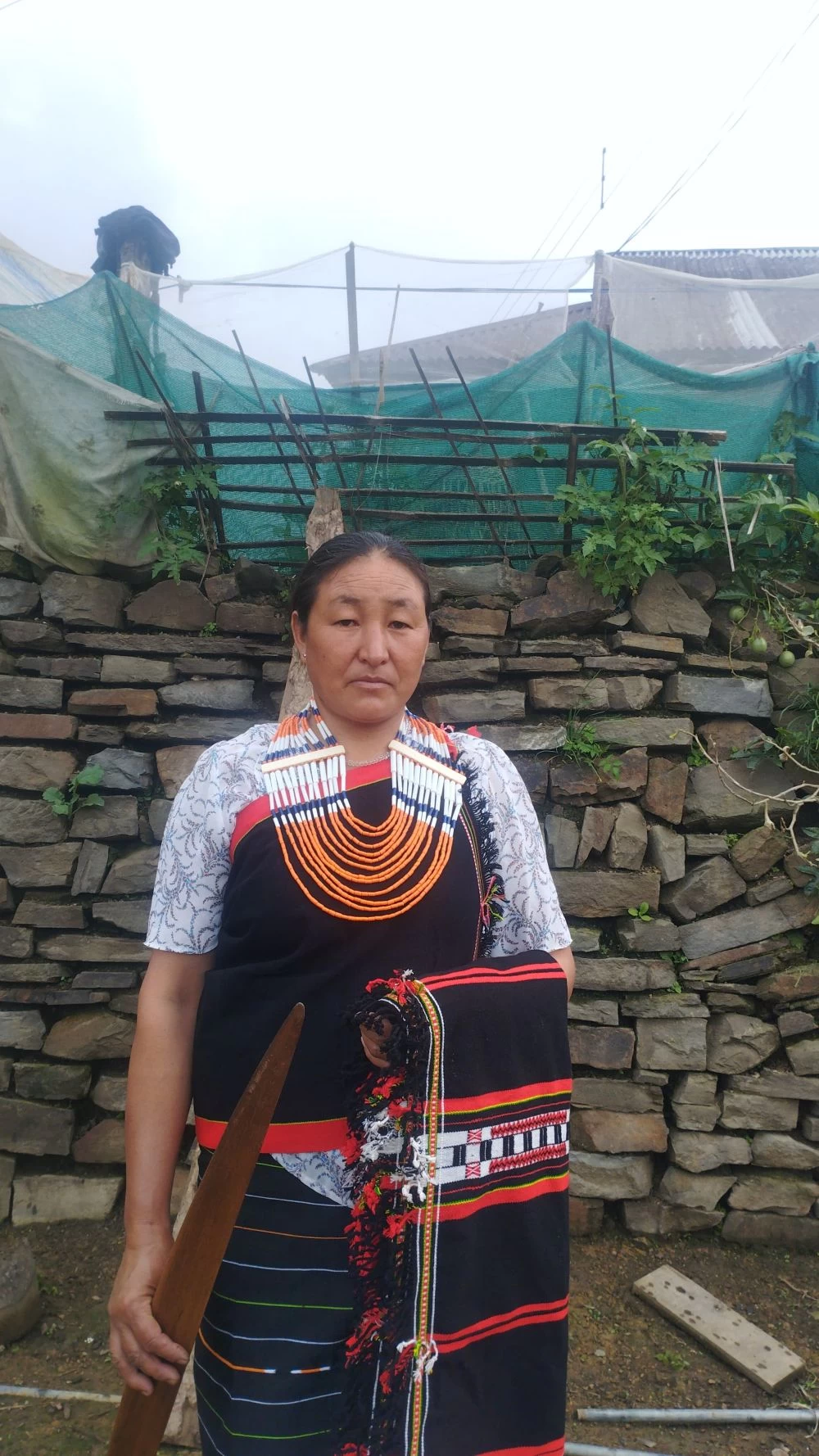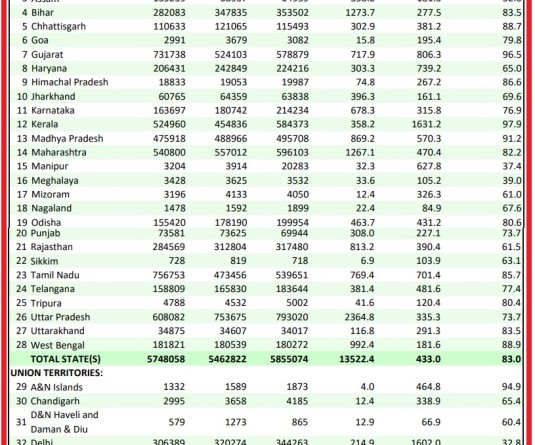
DIMAPUR, JULY 4 (MExN): The Entrepreneurs Associates (tEA), in partnership with the North-eastern Handicrafts and Handlooms Development Corporation (NEHHDC), has launched the first digitalized handloom from North-east India at the Texworld Apparel Sourcing event held at the Porte De Versailles, Paris, from July 1 to 3.
This milestone is part of a project titled ‘Market Development through Digitalization, Authentication, and Implementation of Traceability in the Handloom Sector Weavers of North-eastern States,’ initiated in July last year.
The project mobilized and verified 1,325 weavers across Assam, Arunachal Pradesh, and Nagaland. In May 2024, the project began installing IoT (Internet of Things) devices for testing with six weavers in two districts, significantly enhancing the technological reach of the initiative.

"The IoT device is revolutionizing the handloom sector by integrating AI capabilities into the digitalization of handloom practices in the North-eastern Region," said Neikule Doulo, tEA Executive Director and EANFER Director. "The device provides a tag with a QR code, allowing buyers to view details and pictures of the weaver, the type of fabric or yarn used, and a short video of the weaver crafting the product by hand. This authentication process enables higher pricing, thereby increasing the income of the weavers."
The Texworld Apparel Sourcing event showcased a variety of textiles and craftsmanship, including the first digitalized handloom displayed as part of the exhibition. The shawl, equipped with an IoT device, was woven by Zevelou Lasuh from Thetsumi Village. Lasuh, who has been dedicated to weaving since the age of 14, expressed her joy and honor in being part of the project. "Although I couldn’t attend in person, my weaving tells my story and showcases the unique tradition of the Naga people," she said.

Lasuh’s digitalized handloom, named “Rira,” is a traditional Chakhesang shawl for men. Her participation highlights the rich cultural heritage and skilled craftsmanship of the Naga community. The project, facilitated by NEHHDC, the Ministry of Development of North Eastern Region (DoNER), Government of India, and the Handloom Export Promotion Council (HEPC), aims to create new opportunities for local weavers and artisans in the global market.
Doulo further emphasized the broader impact of this initiative, stating, “tEA is committed to promoting cultural exchange and appreciation for indigenous craftsmanship within the global textile industry. Through EANFER, our marketing company, we aim to bring indigenous products to national and international markets, promoting sustainable development and cultural heritage.”




